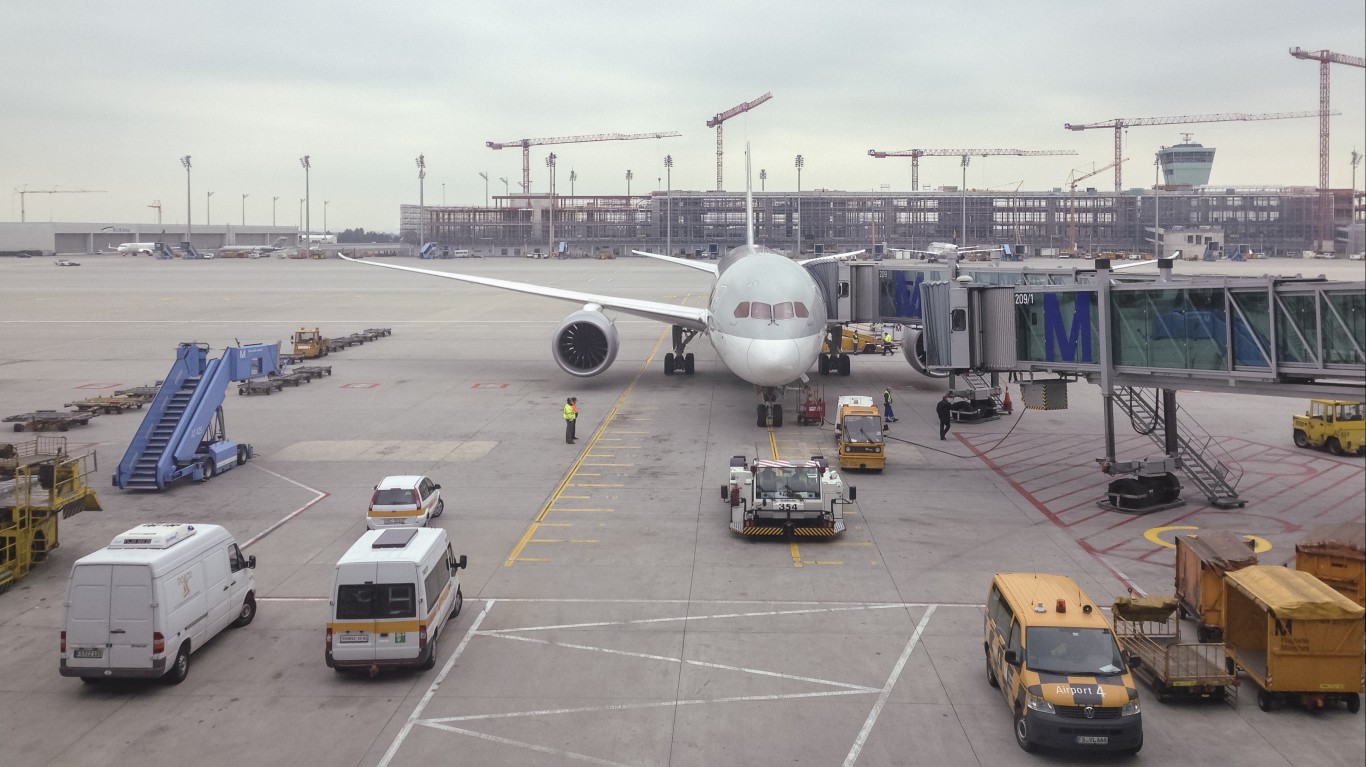Transportation
Airlines Driving Transportation ETFs in Rare Price Hike Cheer

Published:
Last Updated:

Some investors believe that the transportation stocks have to do well for the stock market to do well. After all, if people and goods are not being transported around the country and the globe then it probably means people aren’t buying and selling as many things. There is even the so-called “Dow Theory” which suggests that the market is in an upward trend if one of its averages (industrial or transportation) advances above a previous important high and is accompanied or followed by a similar advance in the other average.
It turns out that transportation stocks in general are still handily down from their highs. Airlines have not recovered even with cheap oil prices. Rail and trucking could face serious pressure if tariffs on goods from China (and even Mexico) slow down the flow of goods across America. And retail spending has so far been somewhat muted in 2019.
On a day where the broad markets are up just 0.3% on average, the transportation sector leaders are generally higher on the day with a range of gains from 1% to 6%. It also turns out that the airline sector is leading that charge higher in the transportation ETFs, which should theoretically be good news for the market in general.
24/7 Wall St. has tracked down the top exchange-traded funds with airline dominance and exposure. It turns out that airlines as a whole are under represented in the world of exchange-traded funds (ETFs). One driver for interest around the airline sector as a whole is a fresh round of airfare hikes announced by American Airlines Group Inc. (NASDAQ: AAL) that were followed by Southwest Air, Inc. (NYSE: LUV) and United Continental Holdings Inc. (NYSE: UAL). American Airlines kicked off the price hikes, and Hawaiian and Southwest were shown to have followed suit with some jares reportedly being hiked as much as $15 each way.
Information on ETFs has been taken from ETFdb.com for expense ratios, assets under management and each ETF’s top holdings and weightings.
U.S. Global Jets ETF (NYSEARCA: JETS) has only $75 million in assets and a 0.6% management fee. This ETF is targeting air carriers primarily, but the 34 total holdings also include companies which supply planes, parts and services to the airline industry. Its top 9 holdings by weight are airlines and just 4 positions account for almost 50% of its weighting.
These are the top 15 holdings (with weightings):
There is also the SPDR S&P Transportation ETF (NYSEARCA: XTN) tracks the S&P Transportation Select Industry Index and has a 0.35% expense ratio. This one has 43 holdings in all aspects of transportation, and in the top 15 positions the average weighting is just 2.8% or so and none has more than a 3.12% weighting. The ‘XTN’ ETF’s top 15 positions
The iShares Transportation Average ETF (NYSEARCA: IYT) includes airlines in the mix, but it also includes all aspects of the Dow Jones transportation index as it has railroads, truckers, parcel delivery, and so on. It has a market value of $517 million and comes with 21 holdings in total. That said, only 3 of its top 15 holdings are airliners. The ‘IYT’ ETF comes with a 0.43% expense ratio. These positions and weightings are as follows:
As a reminder, Warren Buffett’s portfolio managers became big airline investors and have since maintained many of their own positions.
Credit card companies are pulling out all the stops, with the issuers are offering insane travel rewards and perks.
We’re talking huge sign-up bonuses, points on every purchase, and benefits like lounge access, travel credits, and free hotel nights. For travelers, these rewards can add up to thousands of dollars in flights, upgrades, and luxury experiences every year.
It’s like getting paid to travel — and it’s available to qualified borrowers who know where to look.
We’ve rounded up some of the best travel credit cards on the market. Click here to see the list. Don’t miss these offers — they won’t be this good forever.
Thank you for reading! Have some feedback for us?
Contact the 24/7 Wall St. editorial team.